How to use essential oils to clean your home naturally – everything you need to know
8 essential oils to choose for a naturally clean home
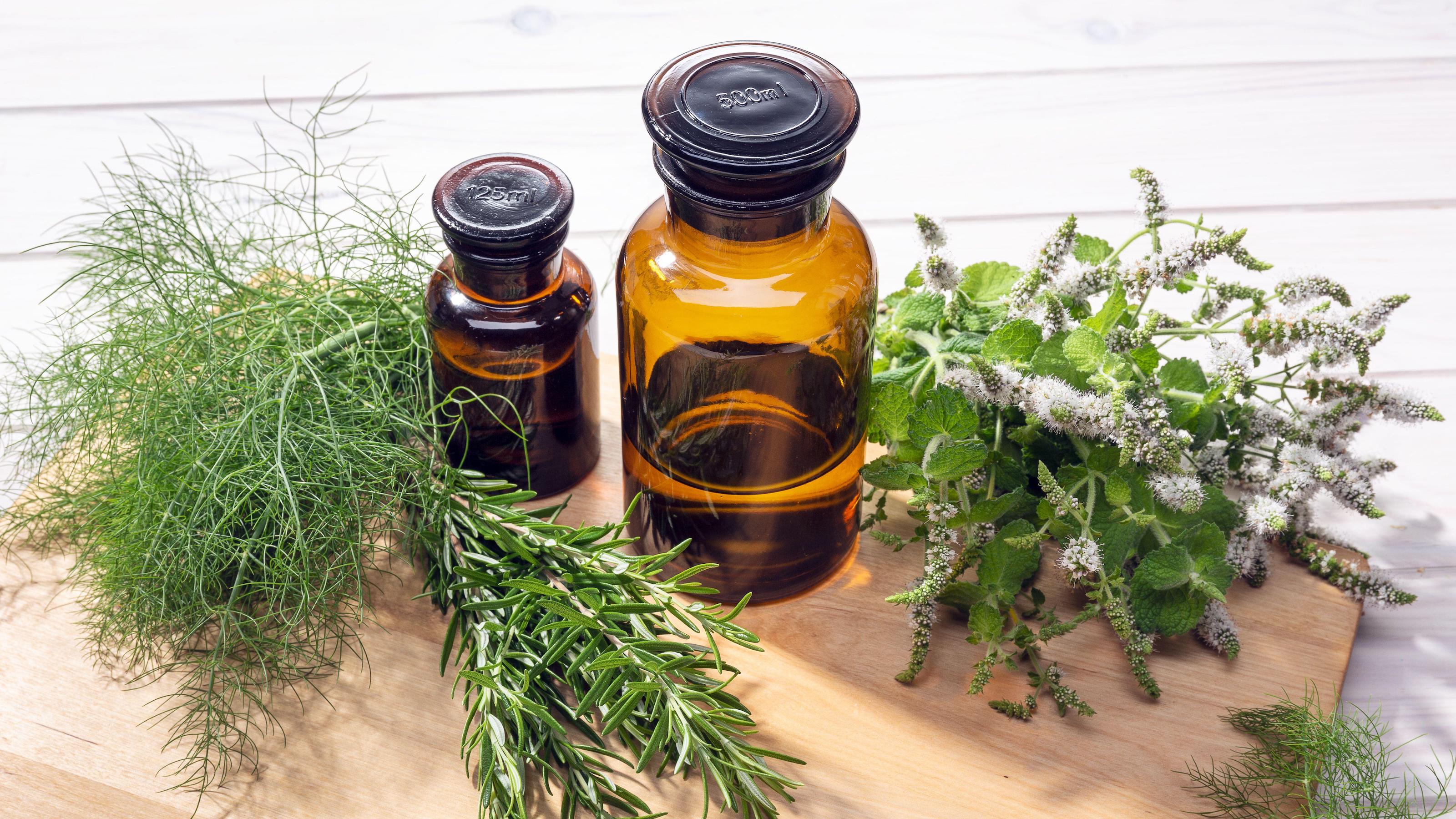


Many of us are concerned about the toxins in our environment, from VOCs in paint to pesticides in food and additives in our beauty products. So it's no surprise that what we use to clean our homes is high on our clean-living agenda.
We want effective formulations that won't damage our health or the planet, and essential oils are perfect for this. Whether in shop-bought eco-cleaning products or used in your own natural cleaning hacks, essential oils occupy that sweet spot between natural and functional – and they smell amazing, too.
We talked to experts to find out which essential oils should be part of your cleaning kit. Plus, we're sharing recommended recipes for antibacterial sprays, grease busters and more, so you can discover the secrets to using essential oils for cleaning your home.
Using essential oils for cleaning
Essential oils are concentrated compounds from plants, extracted through methods including distillation and cold pressing. The oil that's produced retains the natural 'essence' of the plant, and it's this that gives them their beneficial characteristics.
'Ongoing studies have shown that essential oils could hold disinfectant properties, effective against viruses and bacteria,' explains Yasmin Sharp, aromatherapy expert at Nikura. 'By combining a few drops of essential oils with a spray bottle of another liquid, they are a natural, safe, and non-toxic way to clean your home.'
Before you start using them in your home, it's worth nothing that you shouldn't use neat essential oils on any surface. 'Always dilute before use and be cautious on wooden painted surfaces. It would be prudent to do a patch test on an inconspicuous area to test your essential oil cleaner before use,' advises essential oil expert Jo Kellet, from Tisserand Aromatherapy, which produces its own Spring Clean Essential Oil Toolkit.
1. Lemon oil
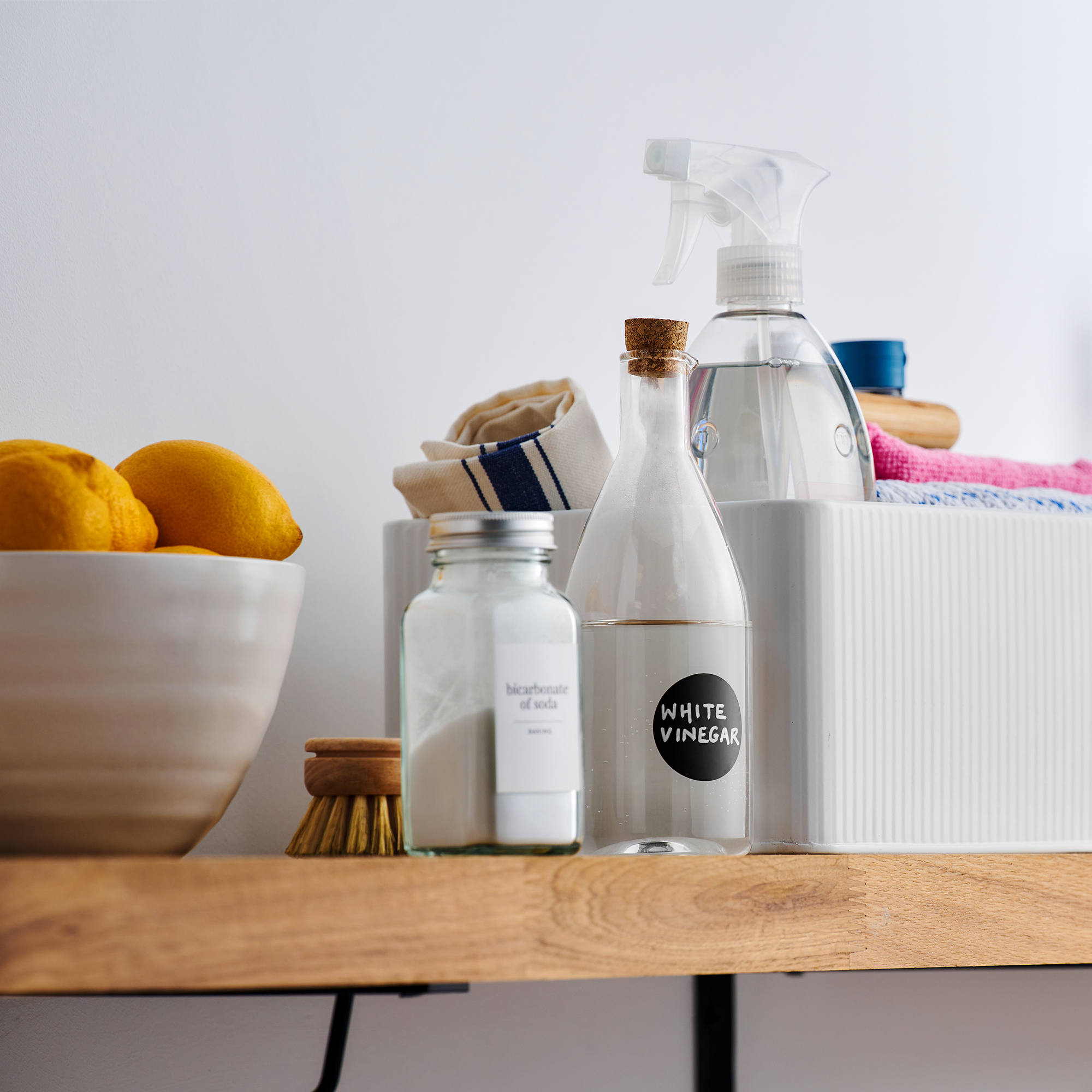
If you can clean an oven with lemon, it stands to reason that lemon essential oil is an effective way to keep your home spick and span.
Get the Ideal Home Newsletter
Sign up to our newsletter for style and decor inspiration, house makeovers, project advice and more.
'Lemon oil provides a clean, citrus scent without any heavy chemicals. It's used to remove bacteria and fungi around the home due to its powerful hygienic properties and ability to attack harmful microorganisms,' says Yasmin Sharp from Nikura.
'Due to its acidic roots, it works well in all-purpose cleaners for kitchens and toilets, leaving surfaces sparkling. Lemon oil could also be used to clean wood, windows, and carpets.'
For surface cleaning, Yasmin recommends adding 5-6 drops of lemon oil to 2 tablespoons of water in a spray bottle and applying to a cloth before rubbing the surface.
2. Eucalyptus oil
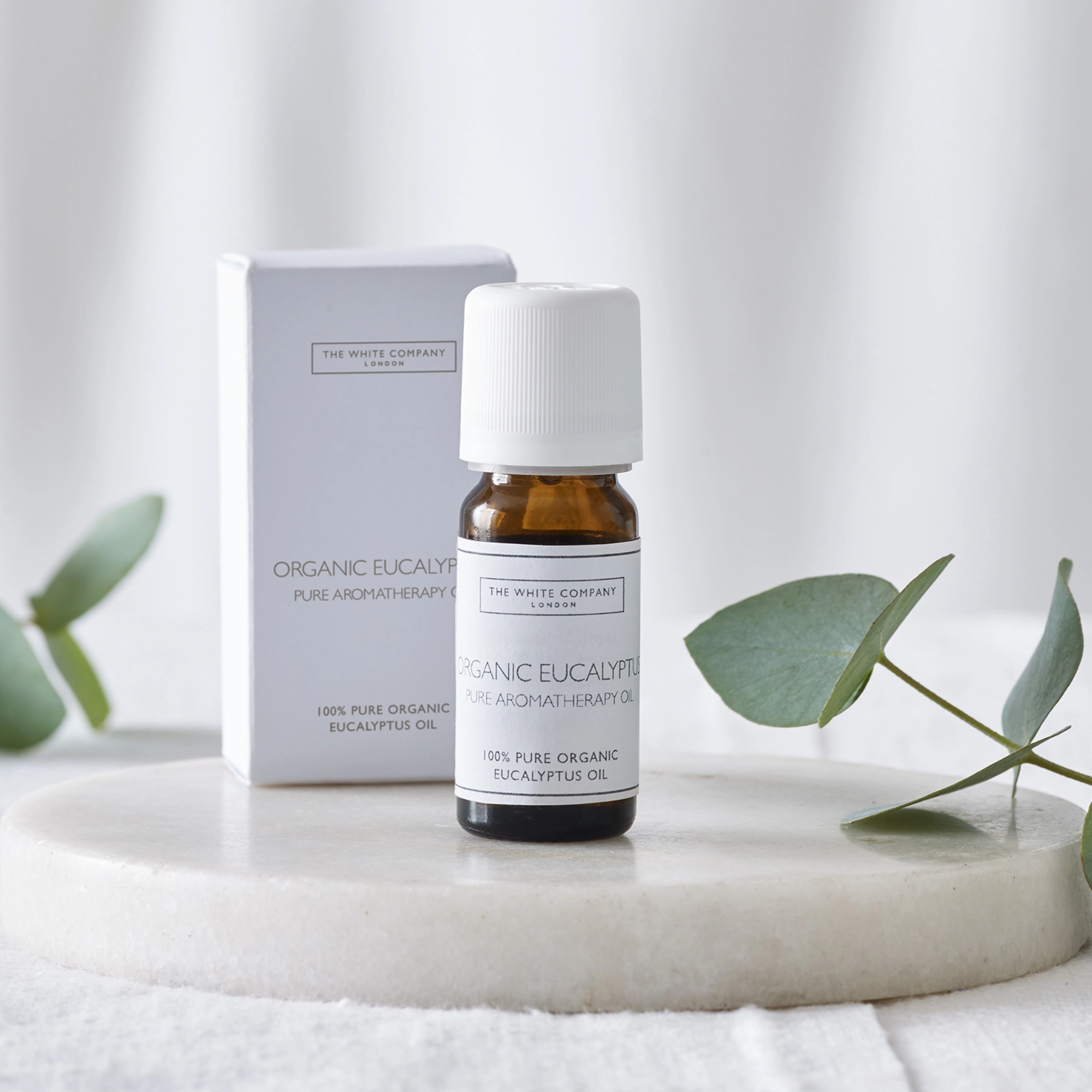
'Eucalyptus oil is a powerful antiseptic with a clearing fresh aroma, which makes it a great essential oil to use around the home.' says Jo Kellet, from Tisserand Aromatherapy. 'It's great for cutting though grease, so it's a really good addition for your kitchen spring clean. It will also destroy germs on surfaces!'
Eucalyptus has another unexpected property that makes it a great essential oil to have at home – it helps to repel mosquitoes. And if you're lucky enough to have a tree growing in your garden, you could hang a few eucalyptus branches in your shower, where the heat and steam will encourage the essential oil to be released from the leaves to scent the room and help you breathe deeper.
3. Peppermint oil
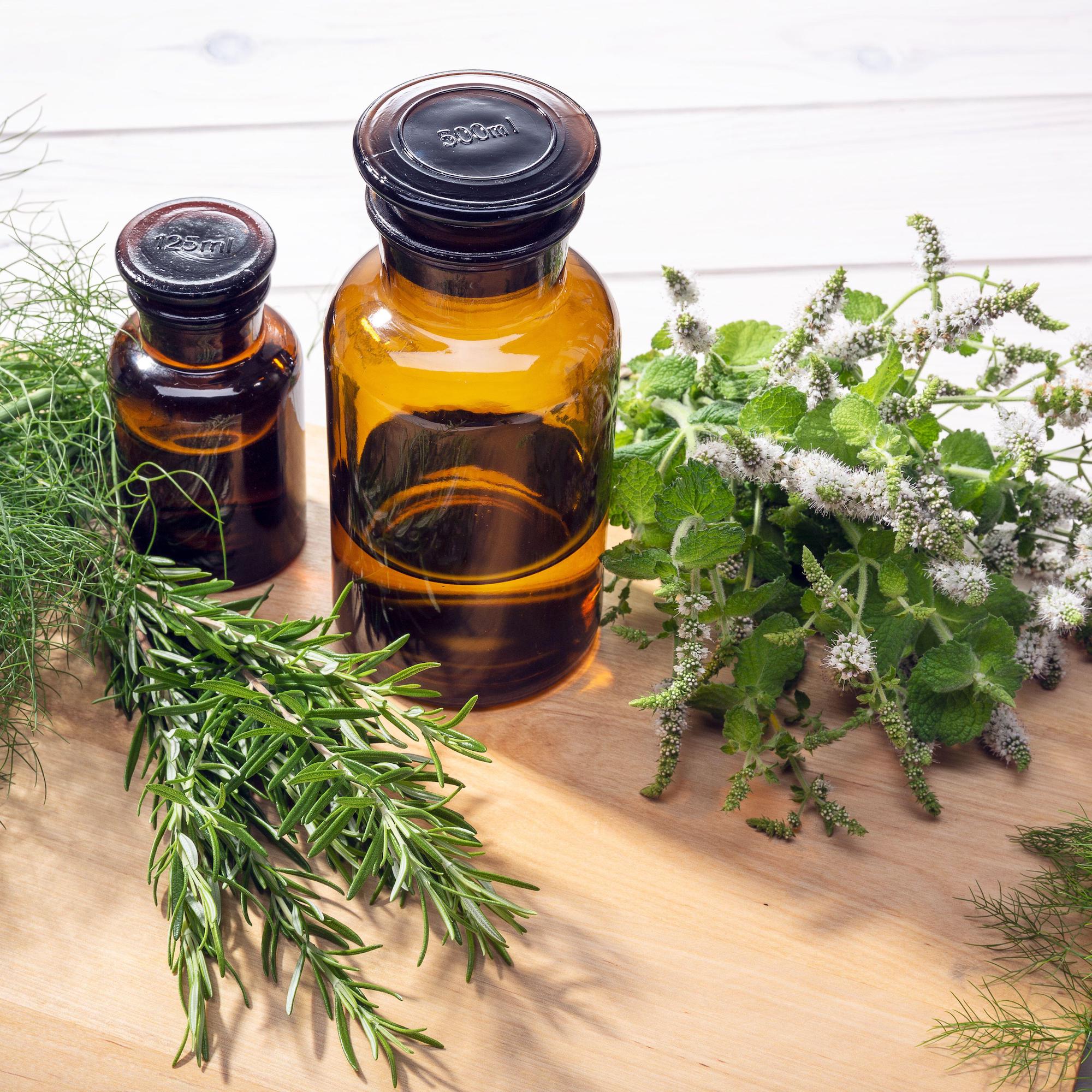
Peppermint essential oil is brilliant smell to wake you up in the morning, but it's also a natural sanitiser that's a go-to for disinfecting surfaces.
'Peppermint is a hygienic oil that carries antimicrobial and antifungal properties,' says Nikura's Yasmin Sharp. 'Showers are a breeding ground for bacteria, so to create a daily shower spray, combine quarter of a cup of rubbing alcohol, with three-quarters of a cup of water and 10 drops of peppermint oil into a spray bottle. Shake well, spray and don’t rinse.'
Hate spiders? Then here's a bonus. 'Research has shown that peppermint essential oil is a natural spider repellent ,' Yasmin says.
4. Tea tree essential oil
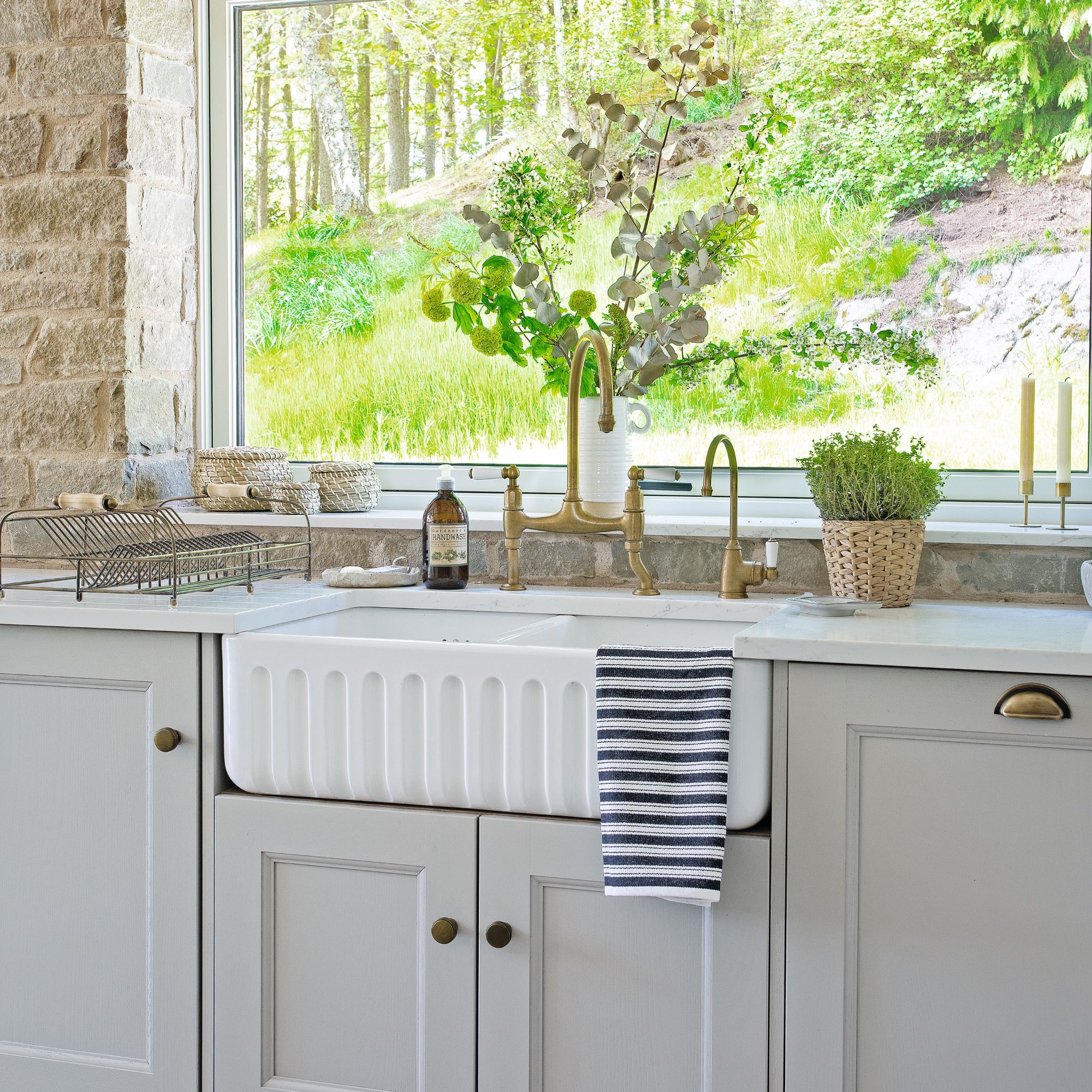
You may already have tea tree oil in your bathroom cupboard – it's renowned for its antiseptic properties and is often used to treat spots and cold sores. But those same bug-zapping qualities can help around the home, too.
'Tea tree is well known for its ability to protect against infections,' explains Yasmin Sharp from Nikura. 'It is best for everyday cleaning throughout the house and works especially well in removing musty odours in kitchens, bathrooms and lofts.
'Your kitchen sink is a magnet for mould, bacteria, and fungus. Add 2-3 drops of tea tree oil to 1 cup of baking soda before scrubbing your sink. Focus on the drain and grooves to eliminate any growing mildew.'
5. Grapefruit essential oil
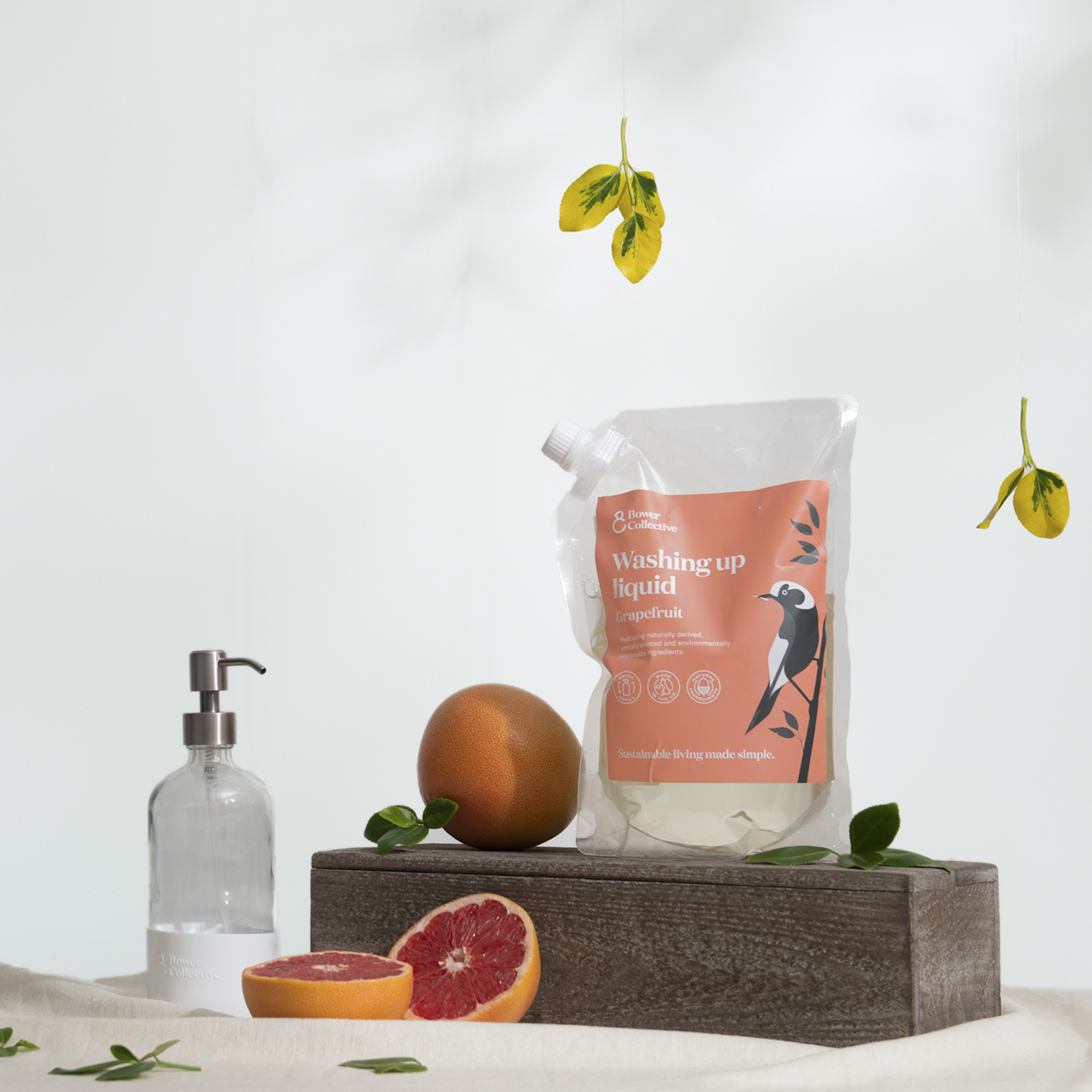
Citrus essential oils are naturally invigorating, making them a great choice for cleaning rooms where you want to feel alert and active. And because of its foodie source, grapefruit essential oil is particularly suitable for cleaning kitchen surfaces, where its scent will complement, rather than clash, with cooking aromas.
'Like all the citrus essential oils, grapefruit’s aroma can only remind you of sunshine and happiness,' says Jo Kellett from Tisserand Aromatherapy. 'So as well as its anti-bacterial properties that are useful for cleaning, the aroma will motivate you as you shake off the winter blues and embrace spring!'
6. Basil oil
Basil in your kitchen isn't just for sprinkling on a bowl of pasta – its antibacterial qualities make it fantastic at cleaning kitchen tools and equipment.
'A study found that the use of basil oil can decrease germs and food-borne pathogens, which keeps the food we eat safe. It is also useful in removing bacteria from surfaces and freshening the air,' says Yasmin Sharp from Nikura.
'Sprinkle 1 drop of diluted basil oil into your basin when washing fresh produce to potentially reduce the risk of harmful microorganisms and bacteria.'
7. Lavender essential oil
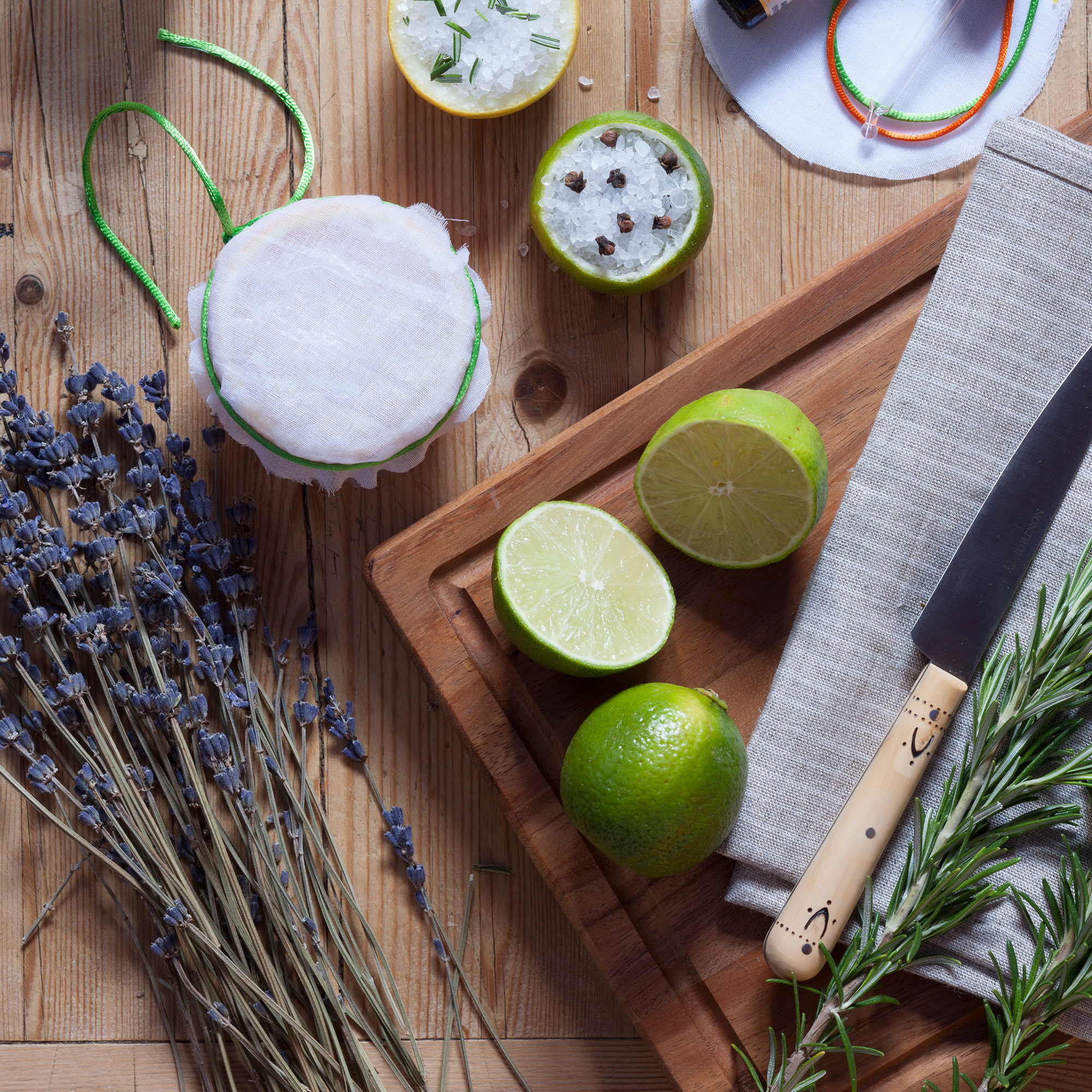
Lavender is mostly associated with tranquillity and sleep – which is why it's one of the best scents to calm you down. But this fragrant essential oil is also beneficial for laundry.
'Lavender essential oil could stop mould and mildew from building up in clothes and provides a floral scent. Acting as a disinfectant and deodoriser, lavender is a gentle all-purpose cleaner,' says Nikura's Yasmin Sharp, who rates it as a way to kill germs when washing clothes.
Add 2-3 drops of lavender oil to your regular detergent or fabric conditioner before you pour it into your washing machine.
8. Orange essential oil
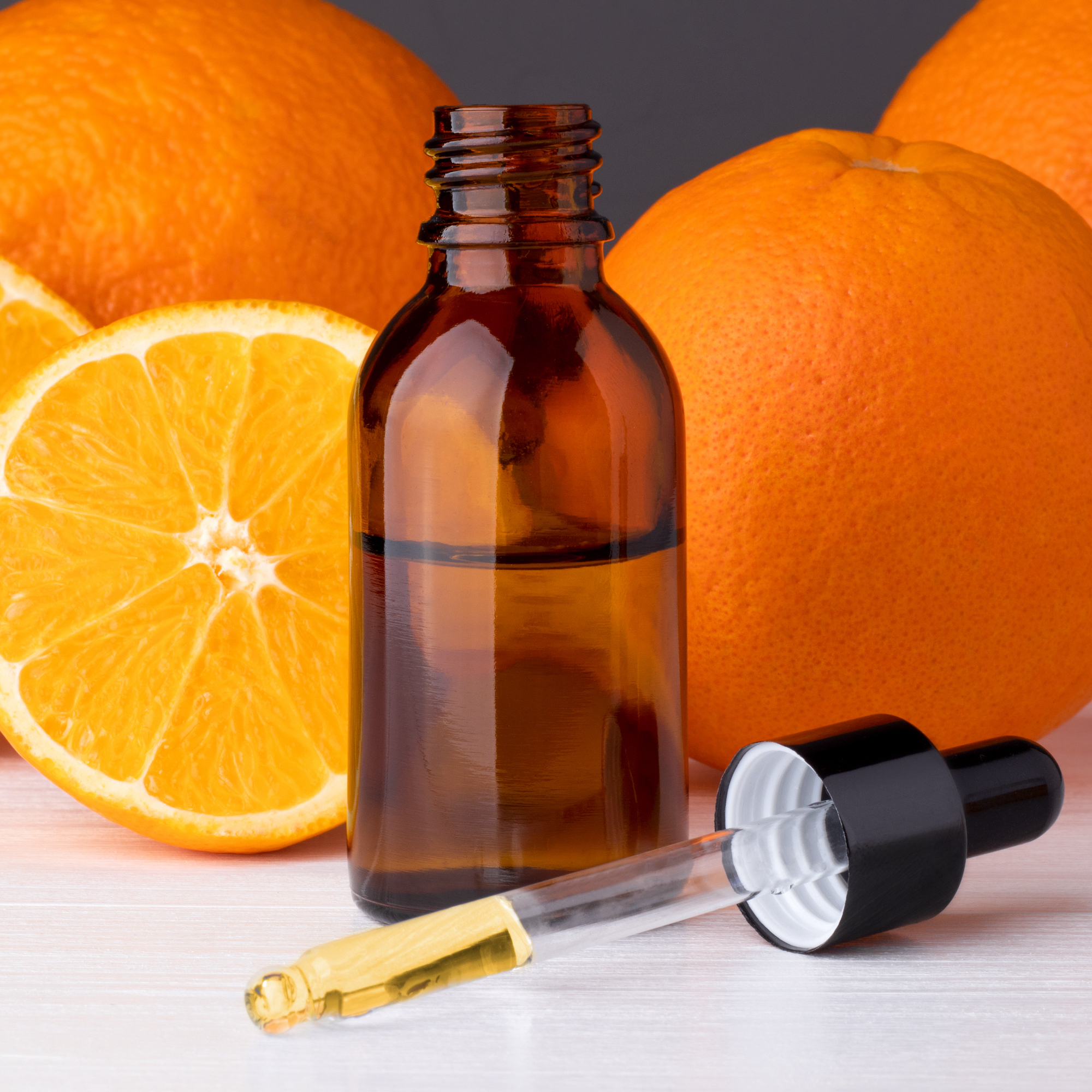
Sweet and bright in its aroma, the scent of orange will encourage happiness and joy, according to Jo Kellett from Tisserand Aromtherapy – which makes it a great addition if you're working out how to clean when you feel overwhelmed.
'Again, orange essential oil is a recognised antibacterial,' says Jo. 'Added to vegetable oil, it’s a great way to polish wooden surfaces and floors.'
5 natural cleaning products to make

Essential oils expert Jo Kellett from Tisserand Aromatherapy shares easy recipes so you can make your own essential oil cleaning products at home.
All-purpose surface spray
Add 10 drops of tea tree, lemon or grapefruit essential oil to 250ml white vinegar and 250mls water in a spray bottle. Apply to kitchen countertops, bathroom sinks or tiled floors. Shake before use.
Furniture polish
Add 10 drops of orange essential oil to 100ml blending oil, such as sweet almond oil. Stir them together, dip a polishing cloth in and wipe over the furniture. Using a separate soft cloth, buff it up and see it shine.
Floor cleaner
Add 9 drops of lemon and 6 drops of eucalyptus essential oil to ¼ cup of white vinegar and 1 tbsp Castile soap. Add to warm water in a bucket, mix and get mopping!
Carpet and rug freshener
In a bowl, add 10 drops of grapefruit essential oil to 25g baking soda and mix well. Sprinkle over your carpet or rug, leave for 10-15 minutes, then vacuum.
Where to buy essential oils
- Neals Yard - a huge selection of essential oils instore and online, starting at £8
- Nikura - The bestseller essential oil gift set of 4 is a great price for £9.49
- Boots - Pick up 3 essential oils for the price of 2 at the moment
- Holland and Barret - buy one and get one half price
When shopping for essential oils do remember that they're not all created equal. A few indicators that suggest it is a good quality essential oil is if it is sold in a tinted glass bottle, includes the Latin name of the plant or list the country of origin.

Andrea began her journalism career at Ideal Home and is currently Editor of our sister title, Country Homes & Interiors, which celebrates modern country style. Andrea is passionate about colour and how it can transform both our homes and our sense of wellbeing, and has completed The Power of Colour course with the prestigious KLC School of Design. Andrea's career spans interiors magazines, women's lifestyle titles and newspapers. After her first job at Ideal Home, she moved on to women's magazines, Options and Frank. From there it was on to the launch of Red magazine, where she stayed for 10 years and became Assistant Editor. She then shifted into freelancing, and spent 14 years writing for everyone from The Telegraph to The Sunday Times, Livingetc, Stylist and Woman & Home. She was then offered the job as Editor of Country Homes & Interiors, and now combines that role with writing for idealhome.co.uk.
-
 Should your front door colour match your hallway? Interior experts reveal 3 reasons why it should (and 3 reasons it shouldn't)
Should your front door colour match your hallway? Interior experts reveal 3 reasons why it should (and 3 reasons it shouldn't)Are you team matching or contrasting?
By Ellis Cochrane
-
 This £200 limited-time discount makes this Dyson vacuum cheaper than I’ve ever seen it - run don’t walk to Argos for this bargain
This £200 limited-time discount makes this Dyson vacuum cheaper than I’ve ever seen it - run don’t walk to Argos for this bargainIt's the most affordable Dyson on the market right now
By Lauren Bradbury
-
 Martin and Shirlie Kemp’s pastel flower beds has given their Victorian renovation a romantic look - how you can get the look
Martin and Shirlie Kemp’s pastel flower beds has given their Victorian renovation a romantic look - how you can get the lookTheir pastel garden is the cottage garden inspo you've been looking for
By Kezia Reynolds
-
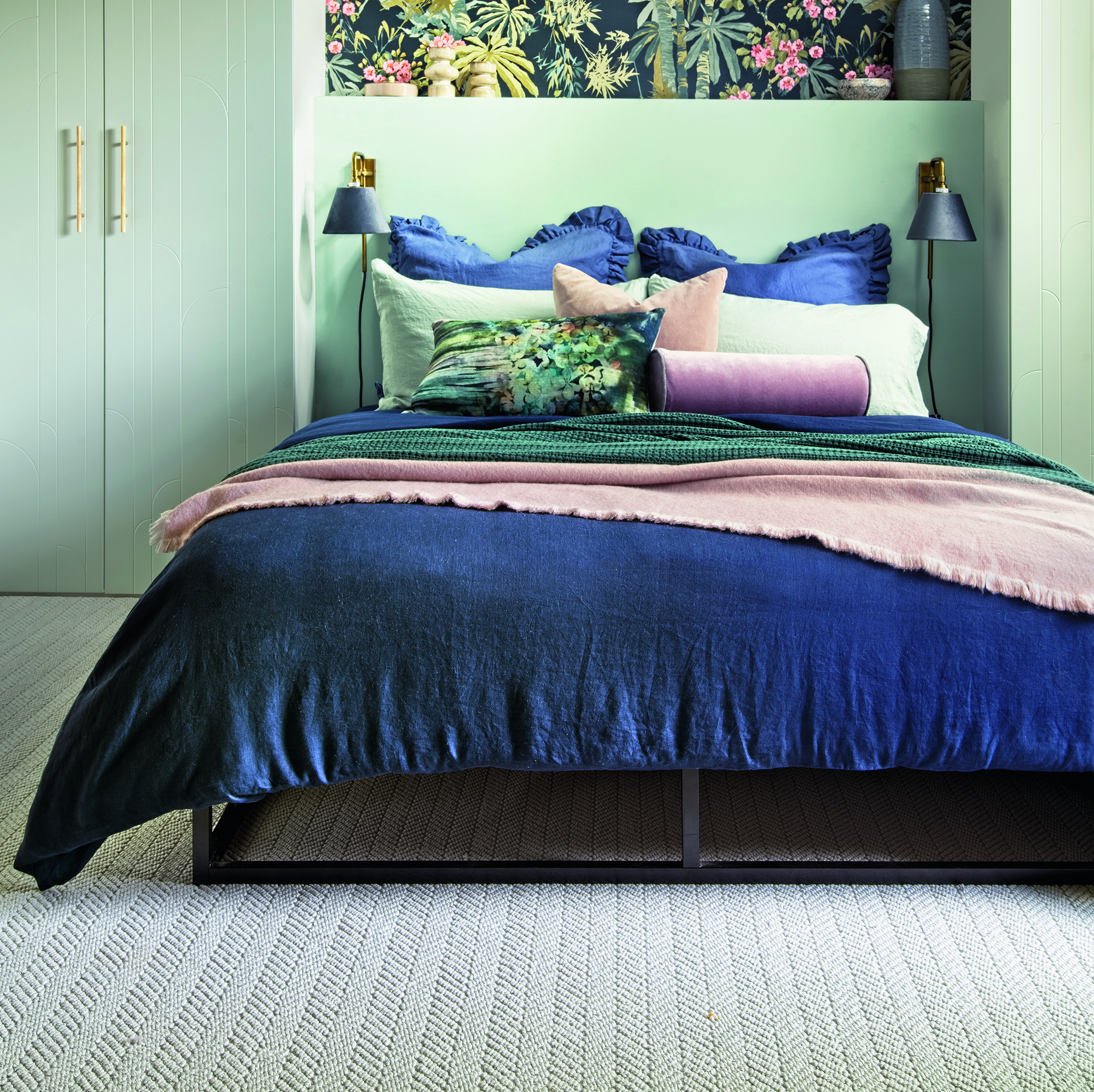
 Experts say this flooring option can improve air quality – and chances are you already have it in your home
Experts say this flooring option can improve air quality – and chances are you already have it in your homeAchieving a healthy home environment has never been easier
By Maddie Balcombe
-
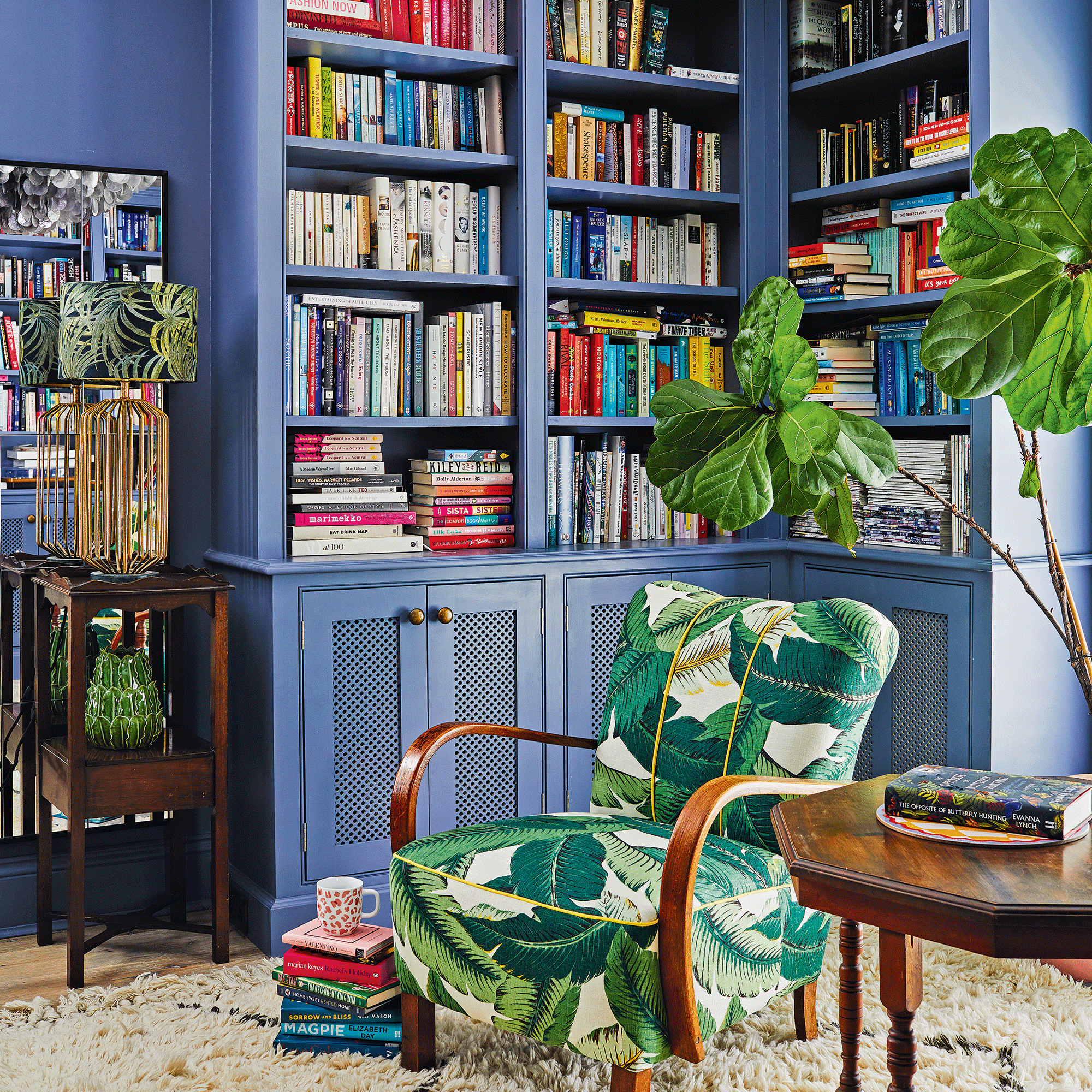
 How to get rid of emotional clutter in the home – free yourself from the things keeping you stuck in the past
How to get rid of emotional clutter in the home – free yourself from the things keeping you stuck in the pastEmotional clutter is the hardest to clear out, but we have some advice from the experts on how to tackle it
By Vanessa Richmond
-
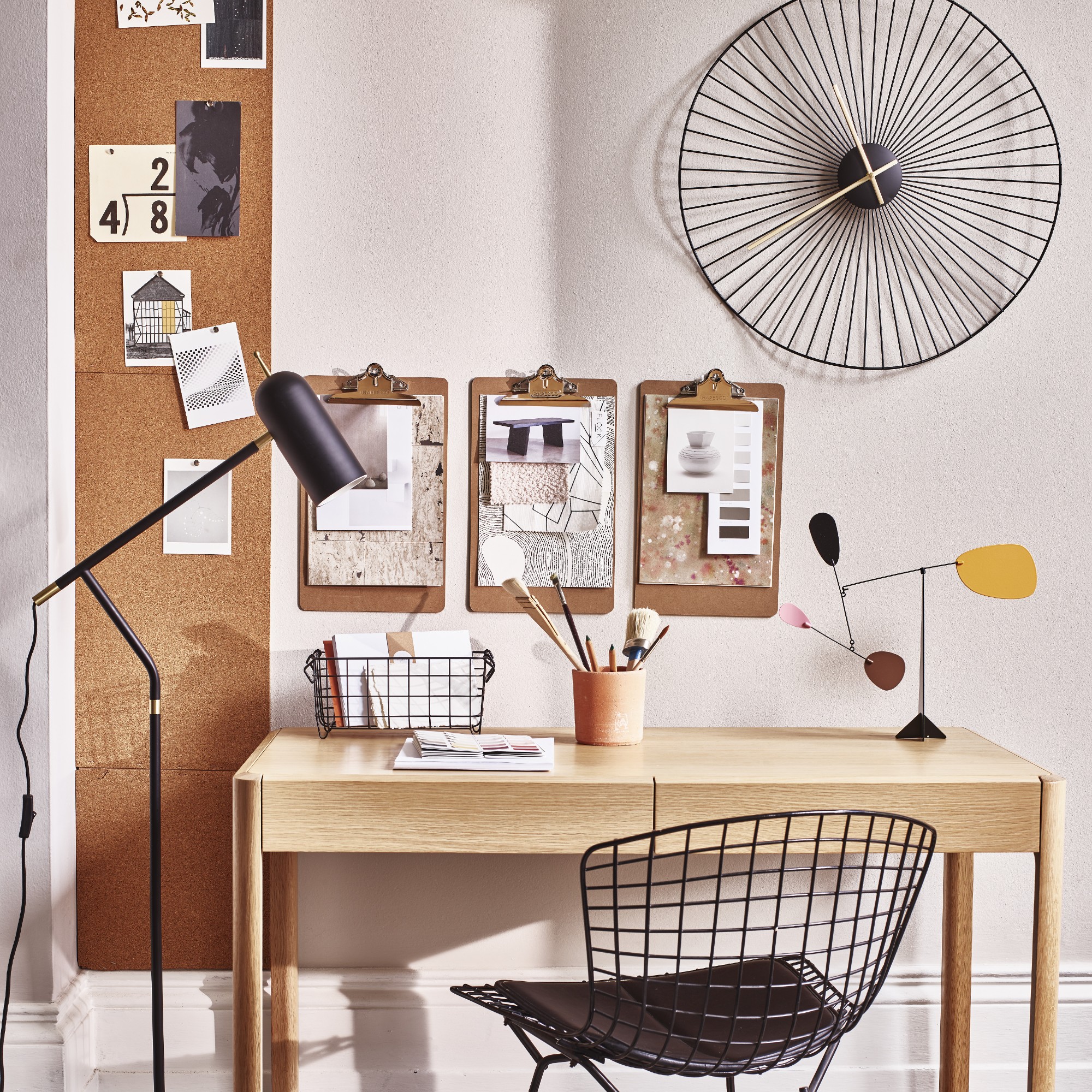 Productivity hacks for tackling life admin - this is how the experts keep their homes running smoothly
Productivity hacks for tackling life admin - this is how the experts keep their homes running smoothlyTips to get you, your wardrobe and your home in order and keep them that way
By Andrea Childs
-
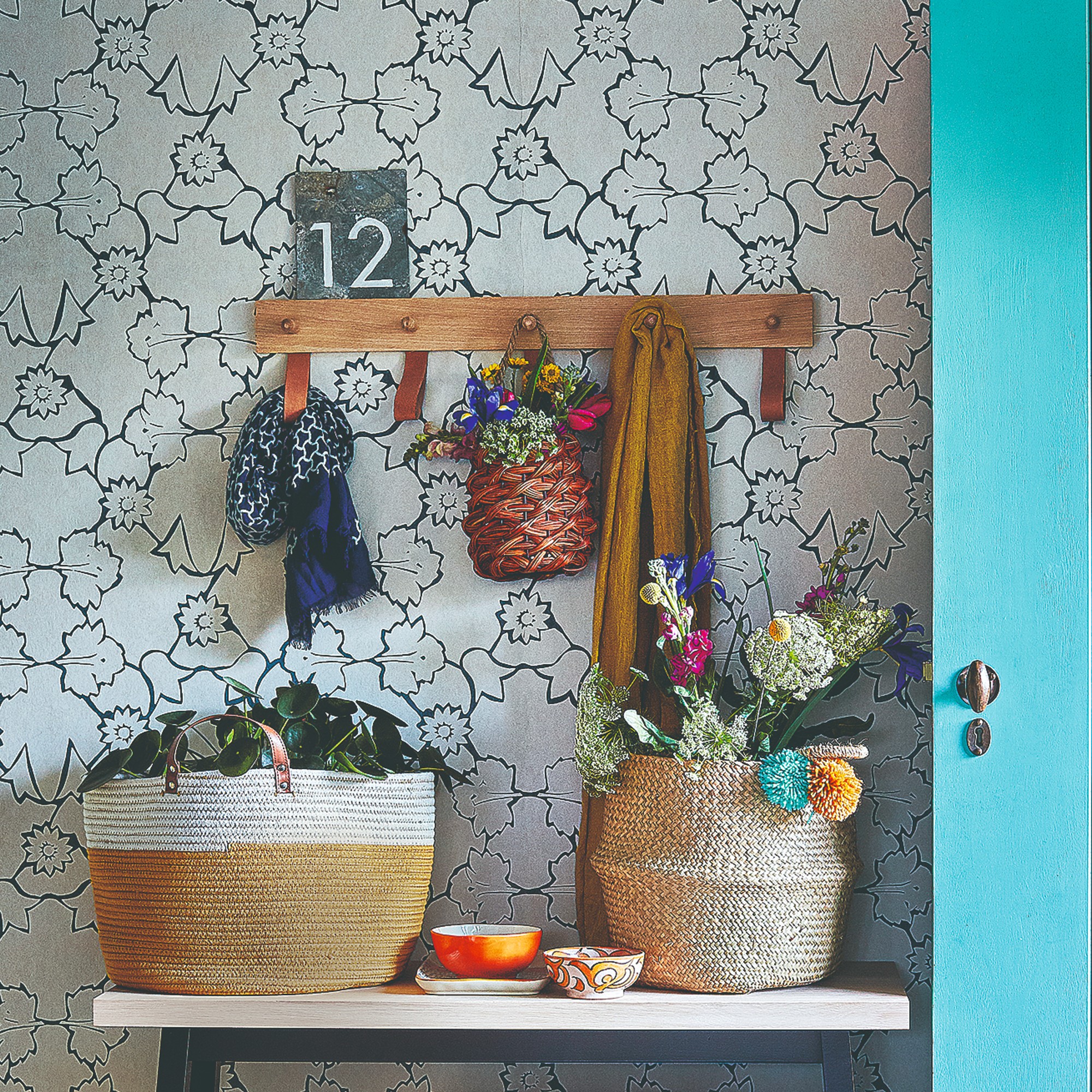 How to give your home a September reset - get the house (and kids) ready for back-to-school season
How to give your home a September reset - get the house (and kids) ready for back-to-school seasonTrain the kids in these systems and strategies to make Monday to Friday more manageable
By Vanessa Richmond
-
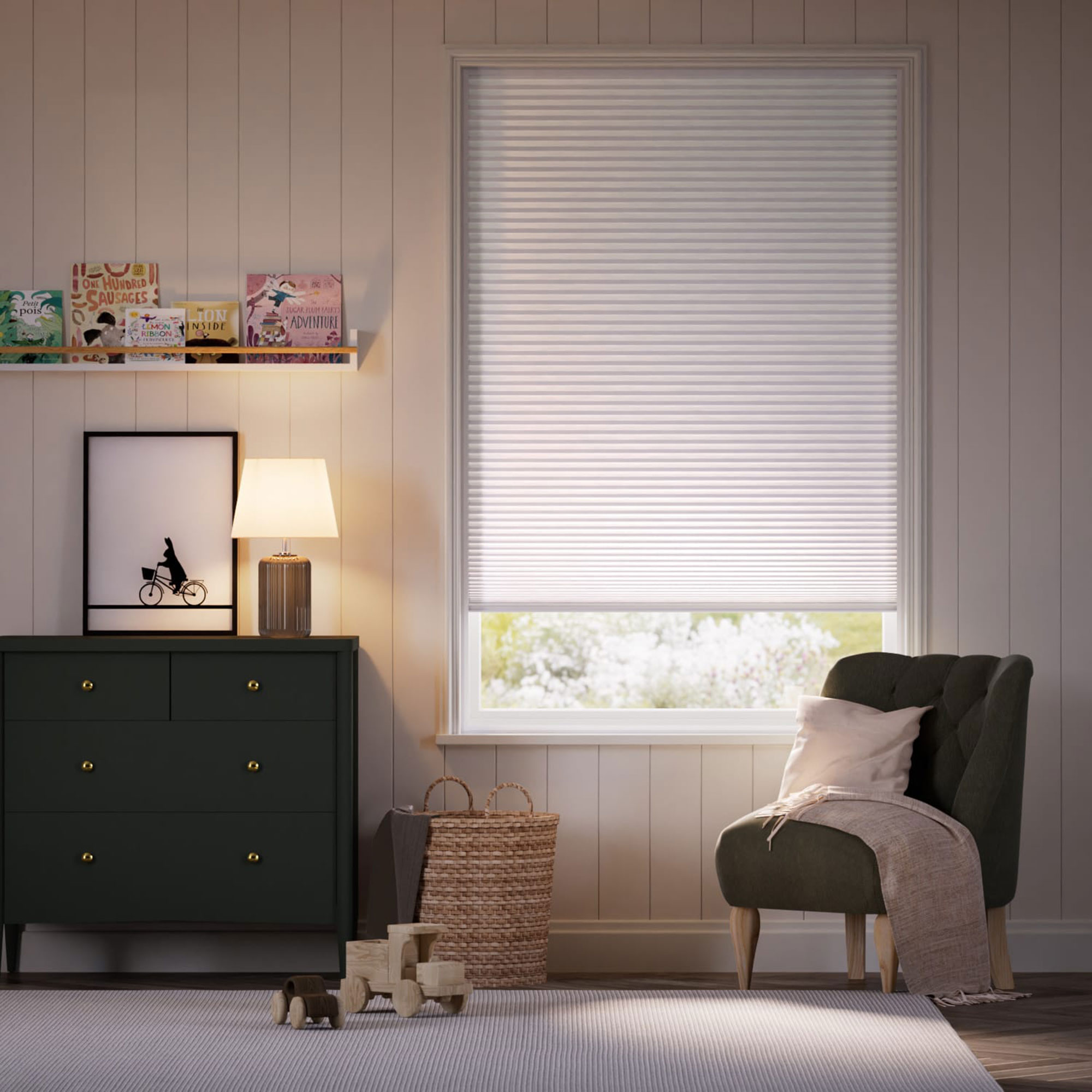 How to fit blackout blinds – Expert advice on how to measure and install them in a bedroom or living room
How to fit blackout blinds – Expert advice on how to measure and install them in a bedroom or living roomDIY your way to a darker room and better night's sleep
By Vanessa Richmond
-
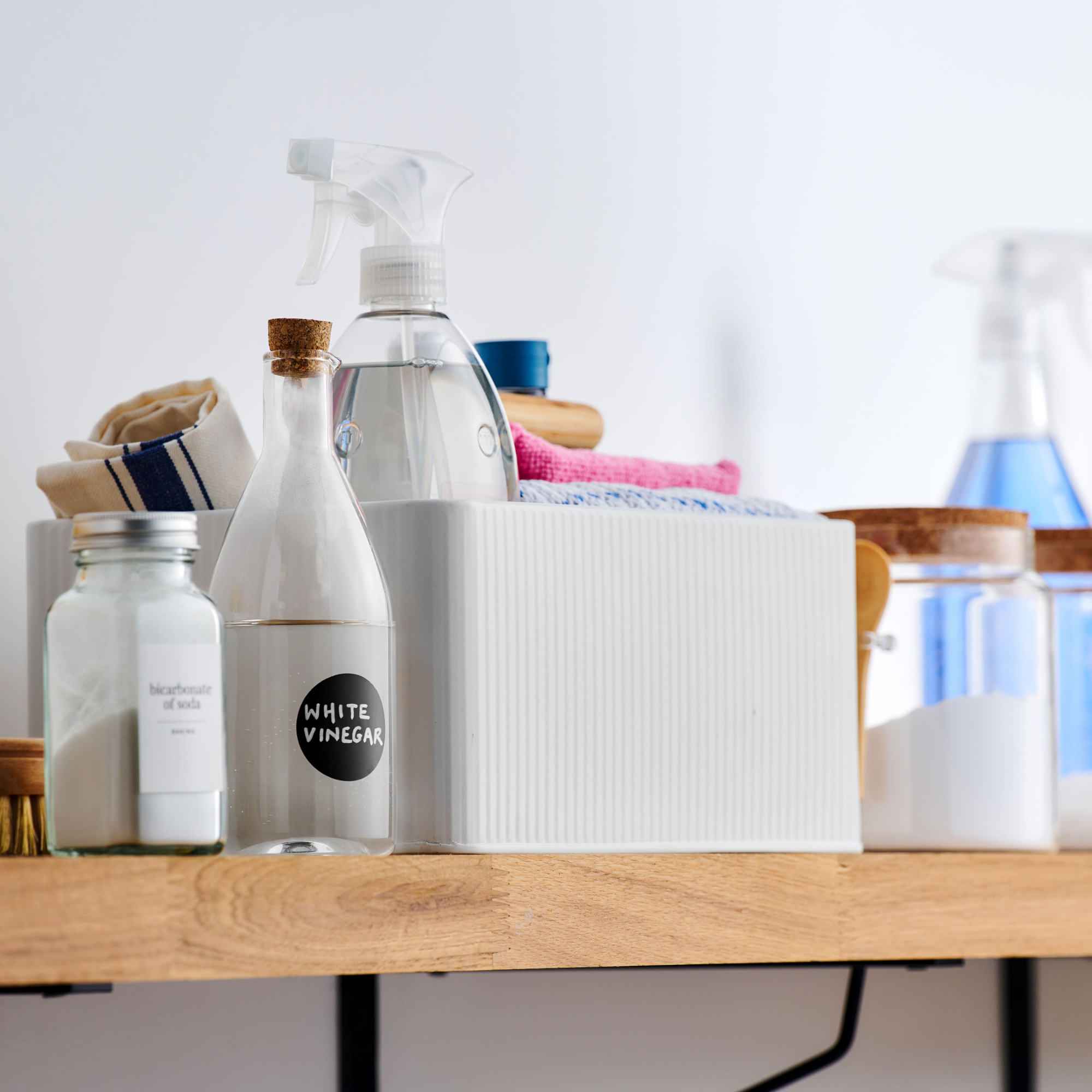
 7 mindful ways to clean your home - don't stress about chores, turn them into therapy
7 mindful ways to clean your home - don't stress about chores, turn them into therapyExperts share the proven ways you can turn cleaning into selfcare
By Vanessa Richmond
-
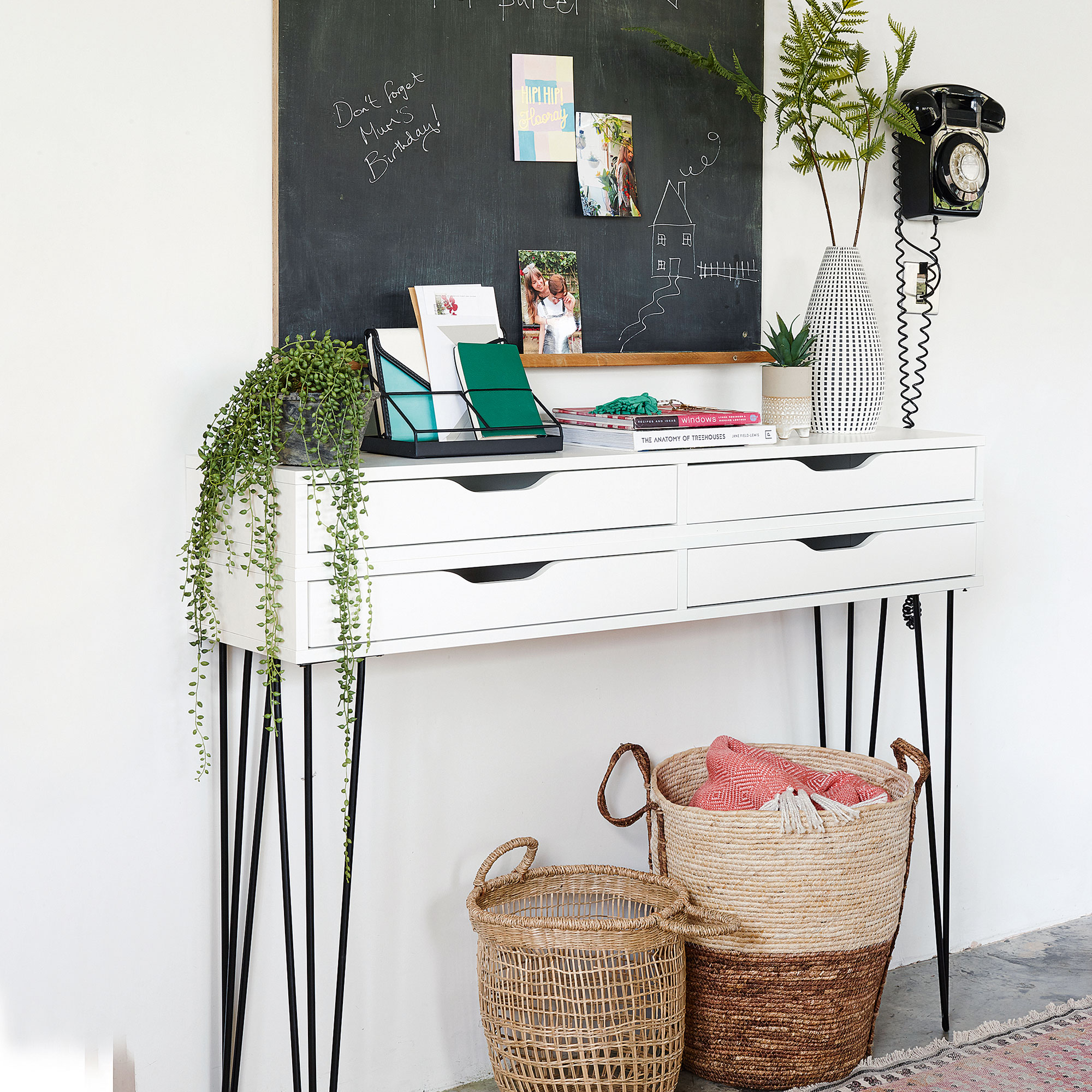 9 mindful ways to declutter your home - turn a stressful chore into a calming, reflective ritual
9 mindful ways to declutter your home - turn a stressful chore into a calming, reflective ritualTackle your next decluttering session with this mindful approach and feel the benefits
By Vanessa Richmond
-
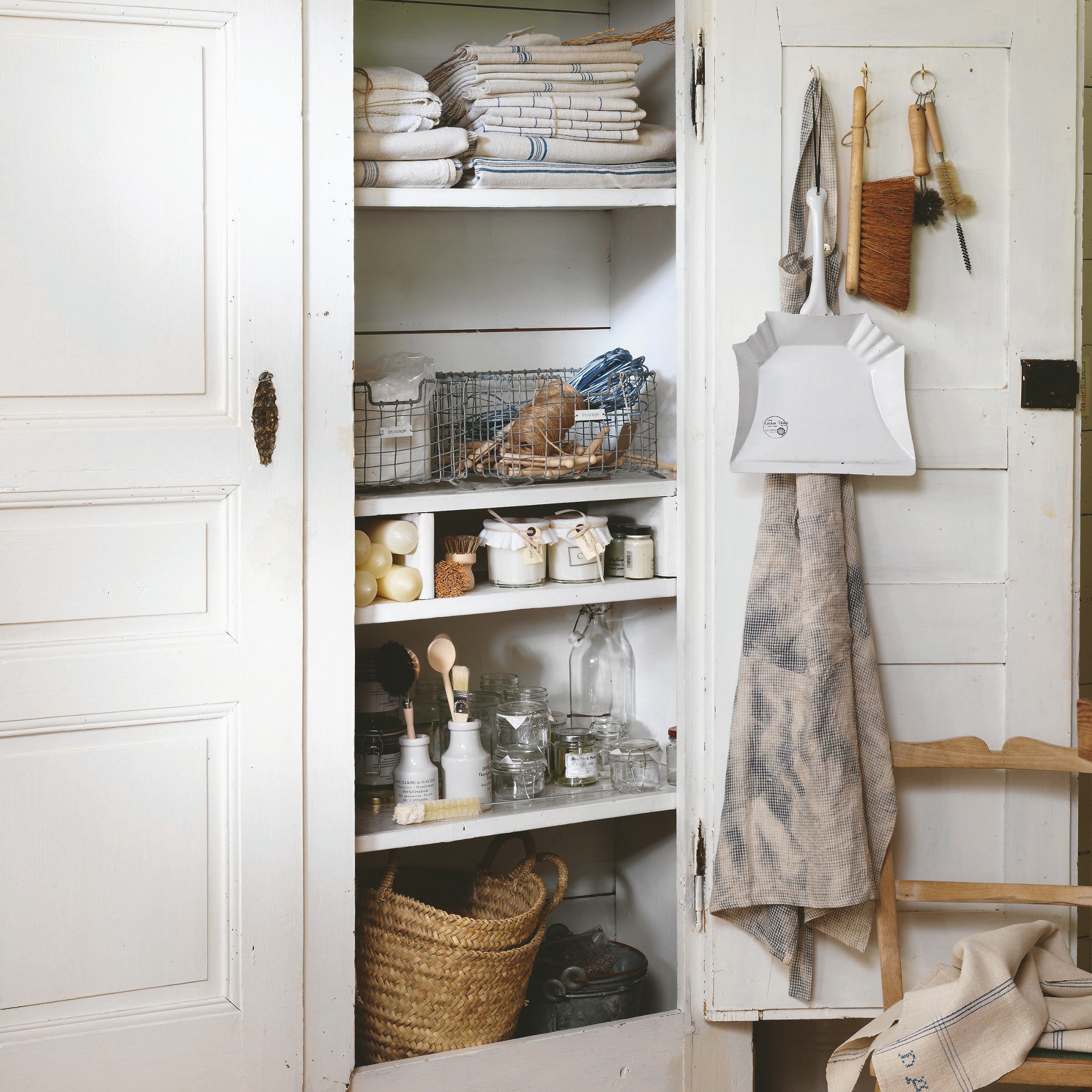 How to make cleaning a habit - tricks experts use to make maintaining a clean home easier
How to make cleaning a habit - tricks experts use to make maintaining a clean home easierGet it right and you’ll never have to do a ‘big clean’ again
By Vanessa Richmond